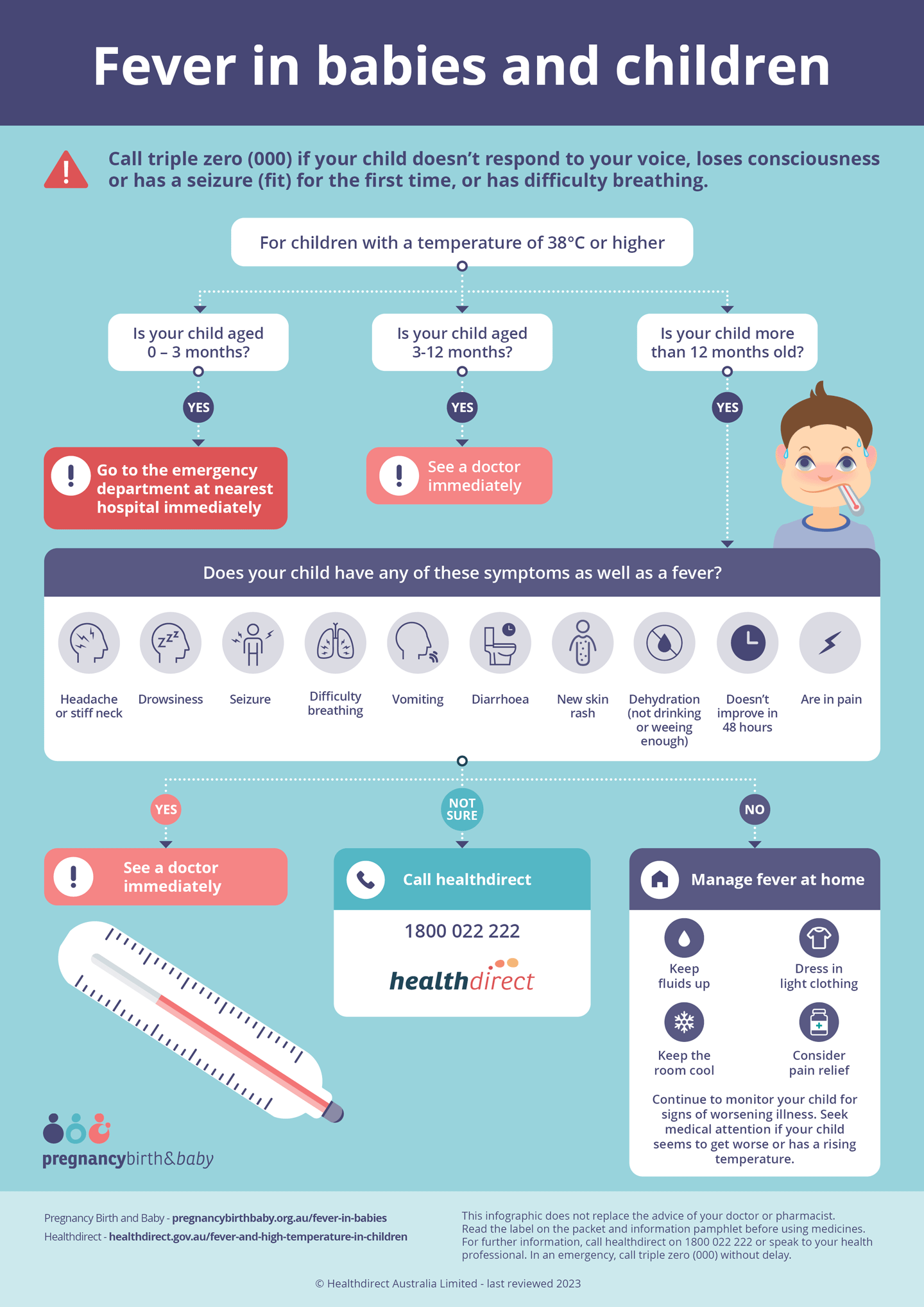
How do you know when to seek help for your baby?
Key facts about a fever
A normal body temperature is 37°C
A fever is a body temperature of 38°C or higher
Using a thermometer is the best way to check your baby’s temperature
Digital thermometers are best. They are safer to use with your child than the traditional (mercury) thermometers.
Read more about fever in babies on pregnancybirthbaby.org.au
No one knows your child better than you.
Your observations, insights and involvement are important for your child's treatment and recovery.
How do you know when to visit the doctor for your baby?
If your baby:
is less than three months old and has a fever (temperature above 38°C)
has a weak immune system due to a medical condition or medical treatment and has a fever then you should see a GP, even if they have no other symptoms .
For all other children, take them to a GP if they have a fever (38°C) and any of these:
a stiff neck or light hurts their eyes
vomiting and refusing to drink
a rash
sleepier than usual
problems breathing
pain that doesn’t get better with pain relief medicine
Also take your child to a GP if they:
have a temperature above 40°C, but show
no other symptomshave had fever for more than two days
seem to be getting more unwell
have had a febrile convulsion.
When to call an ambulance for childhood illnesses?
If you notice any of the following call 000 and ask for an ambulance:
drowsiness or unresponsiveness
high-pitched, weak, or continuous crying
difficulty breathing or unusual breathing
pale, mottled, or blue skin
fits or seizures
non-blanching rash – a rash that doesn’t fade when you press your child’s skin
When to go to the hospital emergency department?
If you notice any of the following:
low urine (less than half the number of wet nappies your child usually has each day)
poor feeding
frequent vomiting. If your child can’t eat or drink anything and is still vomiting after 24 hours (or 12 hours for children under two years)

